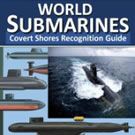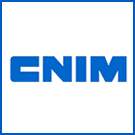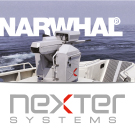|
|
|||
|
Video on the sensor suite and combat system aboard Project 20385
|
|||
|
|
|||
| According to the Director General of the enterprise Igor Ponomaryov, a Project 20385 corvette designed by the Almaz Central Marine Design Bureau, a subsidiary of the USC, has a "pivotal advantage" over the previously delivered ships of the class. "The ship is armed with a state-of-the-art armament suite and features a radar waves absorbing coating that reduces the corvette`s signature," Ponomaryov said. ‘Gremyaschiy’ will get a new multipurpose radar system fitted with active and passive phased antenna arrays. The corvette`s superstructures being produced by the Sredne-Nevskiy Shipyard, a subsidiary of the USC, are made of composite materials that reduce its radar signature. The head of the Russian Navy`s shipbuilding department, Rear Admiral Vladimir Tryapichnikov said at the launching ceremony that the Project 20385 series will be comprised of four corvettes. "The series will be made of four ships; then, we will switch to the building of Project 20386 corvettes," he said adding that ‘Gremyaschiy’ will be issued to the Pacific Fleet. The corvette`s harbor acceptance test is scheduled for August with its delivery to Russia`s Ministry of Defence by end-2018. According to the Northern Shipyard, a Project 20385 corvette has a displacement of 2,500 t, a length of 106 m, a width of 13 m, a speed of up to 27 knots, a cruising range of 3,500 nautical miles, an endurance of 15 days and a crew of 99 naval servicemen. Its armament suite incorporates a 100 mm A-190-01 naval gun, two 30 mm AK-630M close-in weapon systems (CIWS), a Kalibr-NKEh missile system, a Redut naval surface-to-air (SAM) missile system, a Paket anti-submarine system and a Ka-27 anti-submarine warfare shipborne helicopter. The ship is powered by two 1DDA-12000 diesel-diesel engines by JSC Kolomna Plant. The Project 20385 corvettes are intended for detection and destruction of enemy`s underwater and surface combatants, landing operation support and accomplishing of various missions in green waters. They feature a powerful armament suite that allows accomplishing almost all types of naval missions. The Project 20386 corvettes to be built after the completion of the Project 20385 series are believed be powered by two M90FR CODAG engines produced by JSC ODK-Saturn, a subsidiary of the United Engine Corporation, under the imported components substitution program. © Copyright 2017 TASS. All rights reserved. This material may not be published, broadcast, rewritten or redistributed. |
|||
Russia’s Latest Corvette Gremyashchy to Operate in Remote Maritime Zone
- Posted On











